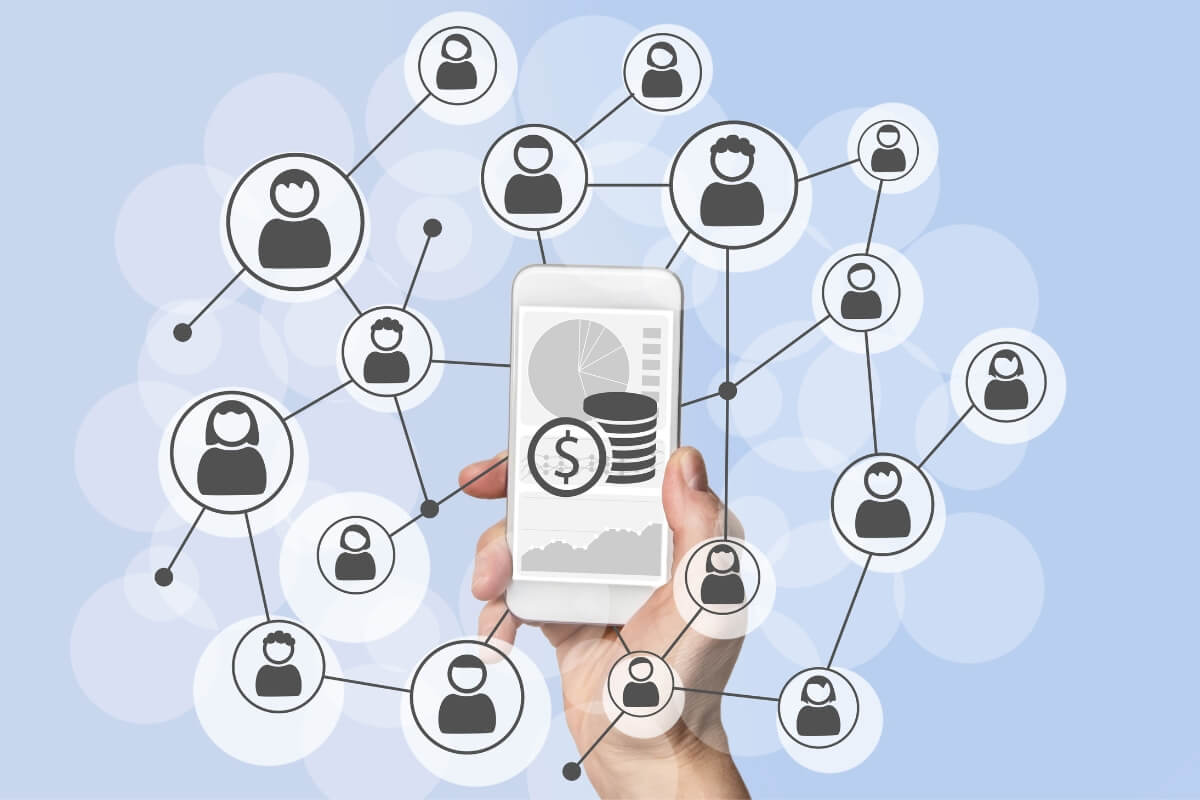- admin
- digital marketing services \, Mobile Marketing Services, The Importance of Mobile Marketing in the Digital Age, top digital marketing company
- 0 Comments
- 966 Views
This practice is known as mobile marketing, using mobile devices like smartphones and tablets to reach specific consumers. Mobile marketing has become a crucial part of digital marketing strategies due to the quick spread of mobile devices and the growing reliance on them for daily tasks. Its benefits and drawbacks used to understand its significance and importance in the digital age:
Mobile Marketing Benefits in the Digital Age
1. Wide-Ranging Impact:
Many people around the world now own smartphones, making mobile gadgets omnipresent. Businesses may access a large and diverse audience through mobile marketing, giving them access to potential clients whenever and wherever they are.
2. Personalization:
Mobile marketing makes it possible to communicate with customers in a personalized way depending on their choices, location, demographics, and behavior. This degree of customization can improve the client experience, boost engagement, and boost conversion rates.
3. Targeted Advertising:
Since mobile devices offer rich user behavior and preference data, advertisers can target particular demographic groups and present highly relevant adverts. Businesses can improve their targeting methods and receive better results using mobile apps, location-based services, and data analytics.
4. Instantaneous Communication
Mobile marketing enables direct, real-time customer interaction through SMS, push notifications, and in-app messaging. This instant communication allows businesses to rapidly and effectively transmit time-sensitive information, promotions, and updates.
5. Increasing Engagement:
Numerous interactive elements, including touchscreens, cameras, and location services, are available on mobile devices and may be used to develop rich and compelling marketing experiences. Mobile games, augmented reality, and interactive commercials demonstrate how engaging and fascinating mobile marketing can be for users.
Mobile marketing's drawbacks in the digital age include the following:
1. Fragmentation:
Designing and testing marketing campaigns that function well across all platforms is difficult because the mobile market is fragmented, with different operating systems (iOS, Android) and device kinds. Additional resources and knowledge are needed.
2. Privacy Issues
Mobile marketing requires collecting and analyzing user data to offer personalized experiences. However, privacy issues arise from consumers’ perceptions of abusing or exploiting their personal information. Businesses must abide by privacy rules and obtain customers’ consent to maintain their confidence.
3. Screen Size Restriction:
Mobile screens’ reduced size may constrain the quantity of content displayed compared to desktop or laptop screens. Marketers must make their material more legible and visually appealing while optimizing it for smaller displays.
4. Technical Restrictions:
Because mobile devices’ processing speeds, internet access, and other features differ, some forms of marketing campaigns may not be possible. Compatibility difficulties, sluggish internet speeds, and storage constraints can impact the user experience.
Mobile marketers face difficulty due to the proliferation of ad-blocking software and apps on mobile devices. Users can use ad blockers to stop the display of ads, which reduces the effectiveness and reach of mobile advertising.
Mobile marketing's significance
In the constantly changing digital landscape, mobile marketing has become a dominant force revolutionizing how companies interact with their customers. An in-depth discussion of the value of mobile marketing in the digital age is provided in this blog article, along with a list of the strategy’s advantages, practicality, and crucial factors.
1. The Pervasiveness of Mobile Devices
The inventions of smartphones revolutionized how people communicate, access information, and decide what to buy. Mobile devices have now permeated every aspect of our lives, with billions of people depending on them daily. Mobile marketing takes advantage of this accessibility by allowing companies to connect with customers anytime, anywhere. Businesses can reach their target audience more efficiently than ever before thanks to mobile apps, flexible websites, SMS marketing, and social media platforms that are optimized for mobile.
2. Enhanced User Engagement
Mobile marketing gives firms unrivaled chances to interact with their clients. Marketers may customize their content and promotions to meet customer preferences thanks to mobile devices’ personalized and engaging experiences. For instance, push notifications allow real-time communication and offer individuals individualized updates, deals, or reminders. Additionally, companies can develop loyalty programs using mobile apps. It provides location-based promotions and compiles insightful user data to improve its marketing tactics.
3. Better Customer Experience
Organizations must offer a seamless and delightful customer experience to succeed in the digital era. Mobile marketing is inherently helpful in enhancing the customer experience. Businesses can guarantee users a seamless and easy experience across various devices by optimizing websites and applications for mobile use. Customer happiness, brand loyalty, and conversion rates rise due to user-friendly mobile interfaces, straightforward navigation, and quick load times.
4. Highly Targeted And Personalized Advertising
Mobile marketing gives companies access to user data, enabling highly focused advertising campaigns. Businesses can utilize mobile analytics to learn about user behavior, demographics, and preferences, which allows them to present individualized and pertinent content to their audience. Advertisements specifically targeted are more likely to connect with users, increasing engagement and boosting conversion rates.
5. Ubiquity Of Mobile Devices:
The ubiquity of mobile devices has fueled the expansion of m-commerce, commonly called mobile commerce. Consumers increasingly use mobile devices for shopping because of the simplicity of mobile payment options. Businesses adopting mobile marketing may capitalize on this development and offer flawless m-commerce experiences, increasing revenue and building client loyalty.
5. Ubiquity Of Mobile Devices:
The ubiquity of mobile devices has fueled the expansion of m-commerce, commonly called mobile commerce. Consumers increasingly use mobile devices for shopping because of the simplicity of mobile payment options. Businesses adopting mobile marketing may capitalize on this development and offer flawless m-commerce experiences, increasing revenue and building client loyalty.
Conclusion
Mobile marketing services has changed the game for companies looking to succeed in a cutthroat industry in the digital age. Its significance must be considered because it enables companies to take advantage of the widespread use of mobile devices. It increases user interaction, promotes customer interaction, provides personalized content, and capitalizes on the expanding m-commerce trend.
Mobile marketing tactics must now be included in a company’s overall marketing strategy as they help it traverse the digital world. Businesses can seize new opportunities by utilizing the potential of mobile devices. It has a deeper connection with its target market. It maintains its relevance in a society that is more and more mobile-focused.
Also Read
Unlocking Your Brand’s Potential: Why A Top Digital Marketing Agency Is Essential In 2025


